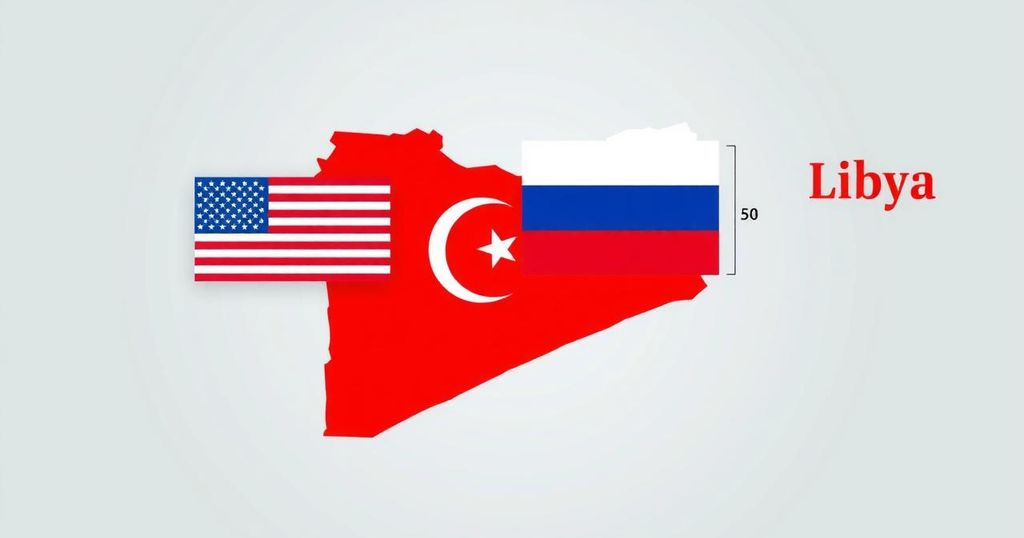Libya serves as a battleground for U.S.-Russia competition, with military developments posing challenges for U.S. diplomacy. U.S. efforts to engage Gen. Khalifa Haftar are complicated by his ties with Russia, as increasing Russian troops in Libya signify deepening influence. The prospect of U.S.-Russia balance shifts hinges on internal dynamics, particularly regarding Haftar’s family ties and local militias’ roles.
Libya remains a focal point of U.S.-Russia tensions as competition escalates, maintaining a Cold War atmosphere. Recently, a USAF B-52 bomber visited Libya to engage local leaders, aiming to persuade them to remove the growing Russian military presence. The U.S. efforts are directed towards Gen. Khalifa Haftar, who controls eastern Libya and lets Russia bolster its influence in the region.
This diplomatic push from the U.S. followed Haftar’s meeting with Belarus, indicating warming ties with Moscow. Analysts note the Pentagon is overseeing these initiatives due to a perceived lack of strategy from both the Biden and Trump administrations regarding Libya. The preoccupation with military exercises underscores significant U.S. military engagement.
Haftar claims to be open to U.S. collaboration, stating that Russia provides crucial military support, which complicates U.S. attempts to woo him. In a notable increase, Russian troops stationed at Libya’s Brak al-Shati airbase have risen to around 450 from 300 since November. This highlights the expanding Russian foothold amidst American offers of military assistance to Haftar.
Experts express skepticism regarding Haftar distancing himself from Russian support. The U.S. is finding it difficult to unite the eastern and western military factions, as loyalty within Libya is largely to local militias rather than a unified military structure. In contrast, some analysts suggest Haftar’s son, Saddam, is seeking closer ties with the U.S., which may alter the dynamics, though skepticism remains about U.S. response.
While international interest in Libya is increasing, the evolving dynamics indicate potential complexity in U.S.-Russia relations within the country. The hesitance of the U.S. to fully engage may allow for a strengthened Russian presence. Analysts emphasize the impact of local politics and personal ambitions on these geopolitical efforts and the challenges they present for U.S. influence in Libya.
The ongoing U.S.-Russia competition in Libya highlights complex geopolitical maneuvers, with military presence shaping local dynamics. Haftar’s ties with Russia and the involvement of his son Saddam indicate a shifting landscape. Despite U.S. efforts to dilute Russian influence, skepticism remains about the effectiveness of these strategies. The situation reflects broader implications for U.S. foreign policy and regional stability, emphasizing the intricate balance of power in Libya.
Original Source: www.defensenews.com






